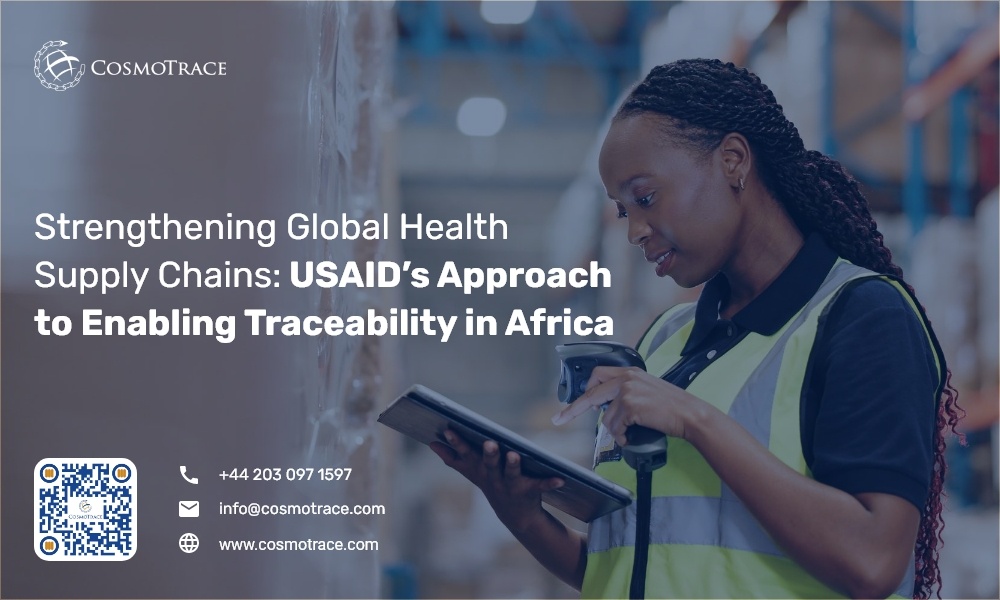Ensuring the authenticity and safety of medical products is a critical priority in global health supply chains. The U.S. Agency for International Development (USAID) has introduced the Traceability Interoperability Platform (TIOP) to improve the tracking of health commodities in low- and middle-income countries (LMICs). This initiative focuses on patient safety, product integrity, and optimizing supply chain operations through effective data exchange.
The Goal of the Open Traceability Platform (TIOP)
USAID's TIOP initiative seeks to create a reliable system for tracking health commodities across LMICs. By enhancing data exchange among supply chain stakeholders, USAID aims to prevent counterfeit products, streamline logistics, and ensure life-saving medicines reach those in need.
In Africa, USAID collaborates with regulatory bodies to strengthen pharmaceutical systems by adopting GS1 standards for traceability. Programs such as TraceNet showcase the use of these standards to track long-lasting insecticidal nets (LLINs), essential in malaria prevention.
The TIOP pilot explores a semi-centralized data-sharing model, facilitating serialized traceability data exchange among stakeholders while meeting regulatory requirements.
Key advantages of this approach include:
- Improved security and data management
- Enforced data access controls
- Standardized data exchange formats
In Ethiopia, USAID has led pilot projects testing GS1 standards for tracking emergency contraceptive pills. Additionally, a GS1 Verification Platform was developed to help the public verify the authenticity of malaria medicines.
Implementation Strategy for Traceability
To establish effective traceability, USAID follows a structured implementation strategy:
- Develop a National Traceability Plan
- Aligns with national health priorities and outlines goals, objectives, and expected outcomes.
- Create Governance Structures
- Establishing a Global Standards & Traceability Steering Committee to oversee execution and coordination.
- Update Regulatory Policies
- Strengthening regulations to ensure pharmaceutical verification and traceability comply with international standards.
- Adopt Global Standards
- Implementing GS1 standards for identification, data capture, and data sharing.
- Enhance Workforce Capacity
- Training professionals, including traceability project managers and regulatory specialists, to support long-term sustainability.
- Integrate Digital Systems
- Deploying interoperable systems that support serialization and real-time monitoring of health commodities.
- Pilot and Evaluate
- Conducting test programs to refine and optimize the traceability system before full-scale deployment.
Proposed Traceability Information Exchange:
TIOP EPCIS Visibility Dimensions |
|
What |
Suppliers provide introduction (commissioning) of specified trade items via visibility object events, including the SGTIN of the item, SGTIN of the case, SGTIN of the pallet (if applicable), and SSCC of the pallet. They also provide the linkage between different packaging hierarchies (each into cases and cases onto pallets) via aggregation events. |
When |
The moment in time at which an EPCIS event occurred, all references in the local time zone offset. Event time is fully specified in the EPCIS standard. |
Where |
• GLN of manufacturers / suppliers involved in the product traceability process. (business location). • The Read Point GLN where the event took place |
Why |
Business Step: Suppliers to indicate in EPCIS event documents that objects have been commissioned, packed and shipped. Business Transaction List: Requires Business Transaction List for only the Shipping Business Step, including the purchase order number of the PSA and supplier Invoice #. Destination List: TIOP will require the Recipient GLN and NTS GLN for the Business Step “shipping” |
Other |
Recipient information: bill-to and National Traceability System (NTS) GLN Instance/Lot master data: batch/lot and expiry |
Advancing the Future of Health Supply Chains
The TIOP pilot is currently being implemented in collaboration with two antiretroviral (ARV) manufacturers, USAID, and the Nigeria National Agency for Food and Drug Administration and Control (NAFDAC).
By establishing an open traceability information exchange, USAID is working towards a secure, transparent, and connected global health supply system. This initiative reinforces patient safety and strengthens healthcare infrastructure in LMICs, ensuring essential medicines are safely delivered.
With global health challenges evolving, USAID’s dedication to digital transformation, supply chain transparency, and patient safety remains steadfast. The TIOP initiative is a vital step toward a future where healthcare products can be traced efficiently, fostering trust, accountability, and improved global health outcomes.


